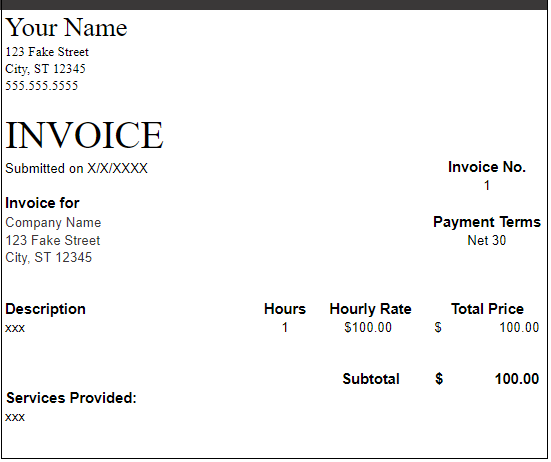The Easiest Way to Get Started doing a Side Consulting Job
I had been working for a number of years in marketing and got a call from a former coworker, asking me if I did any side work. Her company needed someone to analyze their social media marketing and she had thought of me. Before I knew it, I had made thousands of dollars, important connections, and learned a whole new industry while keeping my day job.
Like what you’re reading? Subscribe below and we’ll send you 1 article like this each Thursday.
Side Work 101
44% of Americans have secondary jobs. With inflation currently outpacing salary gains, it’s likely most families are feeling the pinch. Before you start doing work on the side, you should check your employee handbook to see if any rules exist. For what it’s worth, in the last five companies I have worked for none have had policies against this, and you should obviously not do work for competitors.
Also I should note I did this earlier in my career but no longer do it – I’ve switched to writing this newsletter! But when I did I loved it.
Audit: The First Step to a Consulting Side Job
Many people struggle to know where to start. What services do I offer? What will people actually pay for? The easiest way to start doing side work is to offer to do an audit of someone’s current services. In digital marketing I would offer to audit their web analytics or paid advertising, and would do this for free. I would type up a 1-2 page report and set up a call to review. Depending on your profession there’s likely ways in like this – a financial review, operations analysis, etc.
What happens after this in most cases is the company will want to hire you to fix all the things you found in your audit. In my case it was typically installing website pixels, optimizing advertising, or rebuilding a paid social account.
How To Get Clients
Similar to my experience in becoming an adjunct professor, the trick here is to let people know you’re interested in doing this. I’d recommend doing a LinkedIn post, sending out some texts/messages, and generally just letting people know you’re trying to branch out and are willing to do some free audits.
All of my consulting has come through my network, and most commonly through former coworkers. If you’re just starting your career this will obviously be harder. One recommendation I give to my undergraduate students is if they’re looking for something that most companies will find value from is to do a Google Analytics certification course and offer to do a web audit. All companies have websites. Offering to look at their web data and make recommendations is something most companies could use.

Do I Need to Incorporate a Business or Set Up an LLC?
What trips up most people in starting a side business is they believe they need to incorporate a business (ex: start an LLC). The truth is that you can run a business just under your name. So you have the company you’re doing work for send you a W-9 form and under the business name you just put in your name. That’s it.
You will pay taxes on the income when taxes are due, but they are not withheld like a full-time employer. If you end up making a lot of money ($30k+ annually) or taking on some sort of risk, then you’ll want to officially file as a business. Obviously if you have questions you should do some research, and filing for a business is fairly painless, but the real point is you can start today just using your name.
What Should I Charge?
When I started doing consulting I erroneously just charged an hourly rate equivalent to my salary rate. The truth is I should have been charging much more (which I later did). As a rule of thumb I would charge 2x your day job’s hourly rate.
The company is not paying for your benefits or anything else. You’re swooping in and helping them with a specific problem. And odds are they aren’t shopping around – you’ve done an audit and know what you’re doing. Therefore I would charge a flat rate, and a high one at that. There’s two reasons to this this:
- Flat rates are far easier for your sponsor to budget for and are predictable.
- Flat rates incentivize you to work efficiently and to properly scope your project.
Be sure to send over a project scope email or attachment, simply outlining what you will provide and by when. If you want to be really official you can have them sign it, but I never have. You just want to be easy to work with.
Invoicing for Your Work
Here’s an example of an invoice built in Excel. You fill it out and save it out as a PDF. Each invoice should have its own number. I typically just have a check mailed to myself in order to be easy to do business with.

Final Thoughts
I have learned so much doing side work. I meet new people, work with new teams, learn new industries, and push myself. Plus, the extra pay is great!
That being said, the time commitment is real and I would never allow my side business to interfere with my day job. I’ll usually choose one night a week and/or Saturdays to work on side work. You want to be certain that it’s sustainable (otherwise it will cease to be enjoyable or helpful)
Who knows, your side job may open doors you never imagined! Best of luck starting your new side venture.


